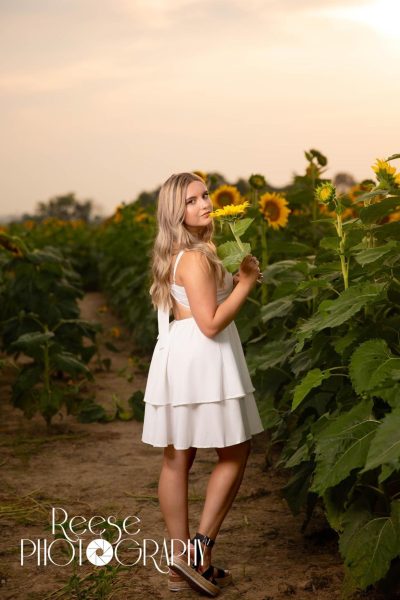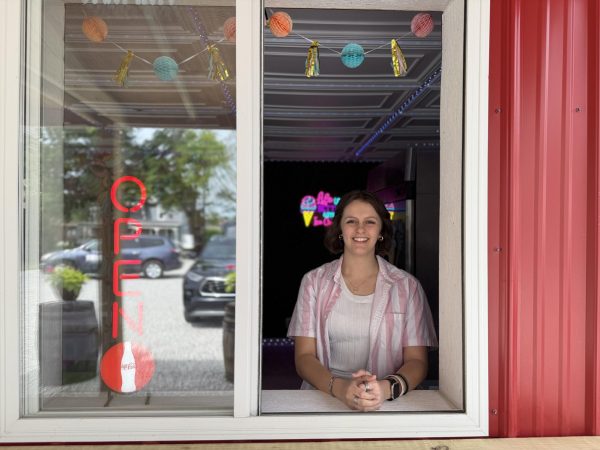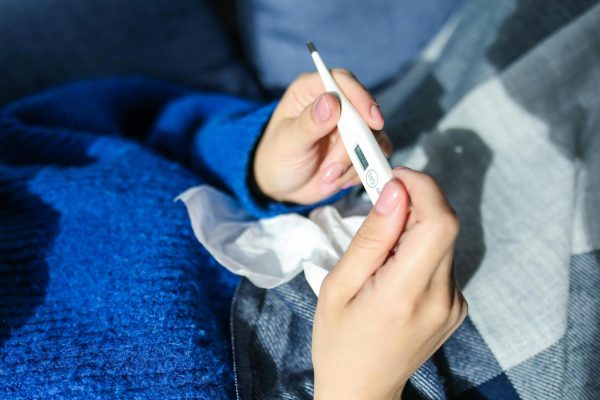Flu and RSV cases on the rise
As flu season begins, RSV cases are also on the rise for young adults
Over the years, people have been exposed to the flu and Respiratory Syncytial Virus. RSV and the flu are normally in the winter season, around Thanksgiving and Christmas. But, this year the flu and RSV have seen a rapid rise in cases. Anyone can contract the flu or RSV, but infants and elderly people have normally been shown to be more susceptible to RSV. This year, however, studies show that teens and young adults are developing RSV more often.
“No one is sure right now why RSV is rising in teens and young adults,” said Gibson Southern School Nurse Laura Rader. “With it being a virus, it can change and morph just like we have seen in the coronavirus. There are different strains. The RSV virus can do that too. So, people that had RSV a long time ago, they could get reinfected with the new strain because it is a little bit different of a virus.”
RSV is a respiratory infection that mainly affects a person’s lungs. It is worse in young kids. Two out of three infants come down with RSV before age one. Like the flu, RSV has similar symptoms. It is hard to determine if people have the flu or RSV because they are both running rampant at this time.
“The flu symptoms are high fever, body aches, respiratory cough, GI (gastrointestinal) upset and nausea,” Rader said. “The RSV symptoms are runny nose, fever, cough, wheezing, trouble eating, drinking, swallowing, having trouble breathing and short periods of not breathing (apnea).”
For the flu, there are vaccinations available to people, depending on their ages: Fluzone High-Dose Quadrivalent vaccine, Flublok Quadrivalent Recombinant Flu vaccine and Fluad Quadrivalent Adjuvanted Flu vaccine.
“You could get a vaccine at any pharmacy or doctor’s office,” Rader said. “There is no vaccine for RSV so that is why you see more prevalence in the younger kids.”
Currently there are no studies explaining RSV has ramped up this year. This is why Rader thinks so many people are coming down with RSV.
“I think it is because it is the first year back to normal from COVID-19,” Rader said. “Nobody is wearing the masks and everyone is back to normal activities. Plus, I also think it is also because of the cooler fall weather. We have been cooped up a little more than normal.”
RSV can spread from person to person. With people getting sick from this virus, hospitals have been filling up sick patients with RSV. It usually lasts up to two weeks.
“I just read an article saying the hospitals, especially pediatric hospitals, are getting very full,” Rader said. “So, RSV has been the worst it’s been, especially this early in the season in a long time.”
The most common thing for those who have the flu or RSV to do is stay home. But, there are other steps people can take to help combat their illnesses.
“If you have the flu, take Tylenol or Advil to lower your fever, stay home, stay away from people and do not return to school until you are fever free for 24 hours,” Rader said. “Like I said, there is no vaccine for RSV, and with it being a virus you can’t just take an antibiotic to get better. So, for symptomatic treatment, just treat your fever with Ibuprofen or Tylenol and treat your cough with over-the-counter cough medicine. If it is a severe cough, get on an albuterol inhaler or a nebulizer treatment or something like that to treat your cough.”
There are many things that you have to do to have a healthy body, especially during the winter season. Here are some ways to help prevent developing the flu or RSV.
“Getting enough sleep, drinking enough water, eating a healthy diet, reducing your stress if possible, washing your hands is what you need to prevent yourself from getting the flu,” Rader said. “Once again, the big thing to do is hand washing and just take as good of care for your body as possible.”
Your donation will support the student journalists of Gibson Southern High School. Your contribution will allow us to purchase equipment and cover our annual website hosting costs.

Jenna Schleter is a senior at Gibson Southern. This is her third year on “The Southerner” staff. Jenna is a member of the Sunshine Society; Family,...






